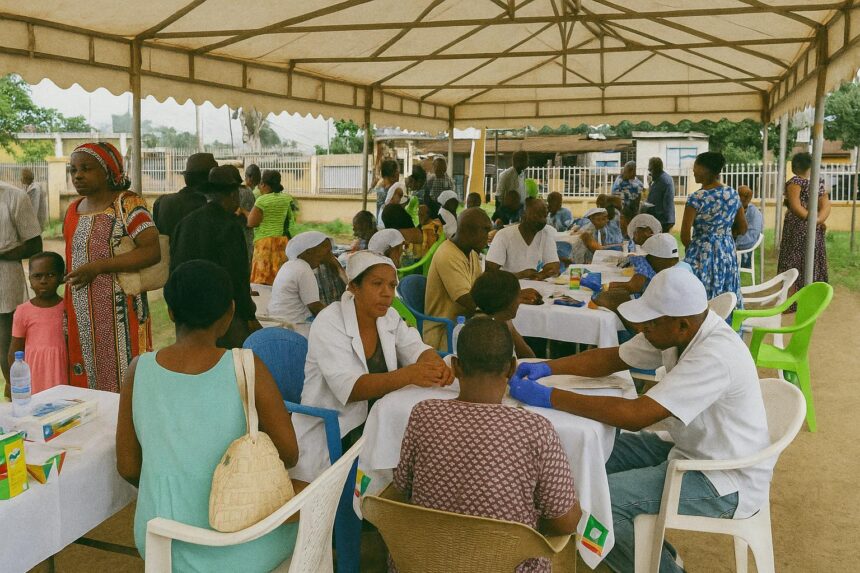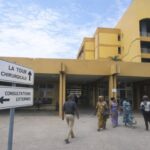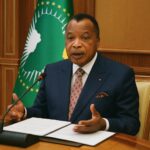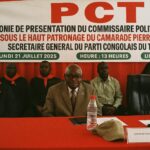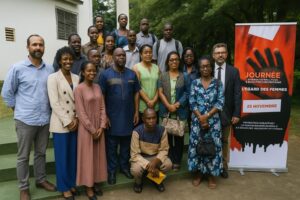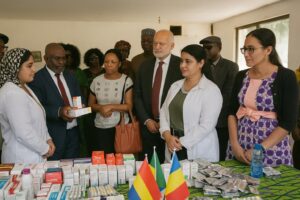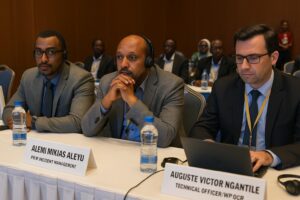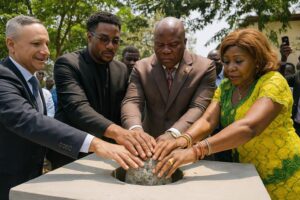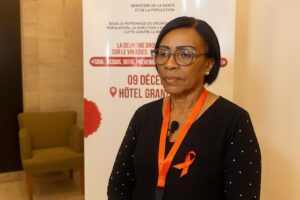Owando celebrates fifty years of healing
The northern Congolese town of Owando entered late July with an unusual bustle. Residents lined the avenues surrounding the historic 31 July 1968 Hospital as the prefect of Cuvette, Emma Berthe Bassinga Nganzali, inaugurated the so-called “Community Health Punch Operation”. Far from a merely commemorative flourish, the initiative extends complimentary consultations, diagnostics and treatment until 2 August, effectively transforming the hospital’s golden jubilee into a living laboratory of universal health coverage.
- Owando celebrates fifty years of healing
- From anniversary to agenda-setting event
- Health diplomacy and the calculus of goodwill
- Public-private synthesis under the Dynamique banner
- Early data hint at resurgent public trust
- Broader ramifications for Central Africa
- Prospects for an inclusive health continuum
From anniversary to agenda-setting event
Anniversaries often default to ceremonial retrospection, yet the local authorities chose a forward-looking frame. In her remarks, the prefect declared that the fiftieth birthday of the facility constitutes “a collective mobilisation around the mainstay of public health in Cuvette”. By reframing a historical milestone into a policy pilot, the département echoes the national commitment expressed by President Denis Sassou Nguesso before the joint houses of Parliament in November 2024, urging government branches to amplify access and quality across the care continuum.
Health diplomacy and the calculus of goodwill
For Brazzaville, health is increasingly a vector of soft power. Congolese officials have long subscribed to the African Union’s target of allocating at least 15 percent of public expenditure to health, a benchmark still eluding most member states (WHO 2023). The Owando outreach, while locally anchored, sends an outward-facing signal: the Republic can marry fiscal prudence with social equity. Regional observers note that Cuvette’s pilot arrives as multilateral lenders praise the country’s post-pandemic macro-stability (IMF 2024), affording room for calibrated social spending that reinforces governmental legitimacy without straining the treasury.
Public-private synthesis under the Dynamique banner
Central to the campaign is the civic platform “Dynamique Owando Pluriel”. Its coordinator, Abel Joël Owassa Yauka, framed the operation as an act of reciprocal citizenship: “Let us give back to Owando a fraction of what it has given us.” In practical terms, the Dynamique supplies logistical muscle and partial financing, while the Ministry of Health seconds physicians and mid-level practitioners. Hospital director Dominique Obissi credits the arrangement for delivering “quality care that tangibly lengthens life expectancy.” International health economists increasingly tout such hybrid models for their agility in resource-constrained settings (World Bank 2022).
Early data hint at resurgent public trust
Within days, registration logs recorded forty thousand consultations—an impressive figure in a town whose metropolitan area barely surpasses eighty thousand inhabitants. Crowds form at dawn yet disperse in orderly fashion by mid-afternoon, a testament to urban planning tweaks and triage protocols borrowed from recent WHO field manuals. Patients interviewed by the Congolese News Agency cited not only the elimination of fees but also perceived improvements in bedside attitude. Such qualitative shifts matter: prior household surveys had flagged out-of-pocket expenses and scepticism toward medical staff as deterrents to timely care (UNICEF 2022).
Broader ramifications for Central Africa
Congo-Brazzaville’s gesture unfolds against a continental push for stronger primary health systems before the next global health shock. Owando’s blueprint complements recent bilateral talks with neighbouring Gabon and Cameroon on cross-border disease surveillance. Diplomats in Brazzaville underline that credible domestic achievements bolster negotiating leverage in regional forums such as ECCAS. By showcasing an inclusive model anchored in local ownership yet supported by the central state, the operation affords the Republic diplomatic capital at a moment when vaccine equity, supply-chain resilience and climate-related health risks dominate multilateral agendas.
Prospects for an inclusive health continuum
As the free-care window approaches closure, voices within civil society and government converge on the desirability of annual iterations. Financing such recurrence will hinge on three variables: sustained macro-discipline, further private-sector enlistment and calibrated donor assistance. While challenges persist—most notably the uneven distribution of specialists outside urban corridors—the Owando experiment demonstrates that targeted, time-bound interventions can ignite public enthusiasm and institutional learning. In diplomatic circles, the takeaway is equally strategic: by deploying health as a bridge between state and citizen, Congo-Brazzaville simultaneously strengthens social cohesion and its regional standing.

